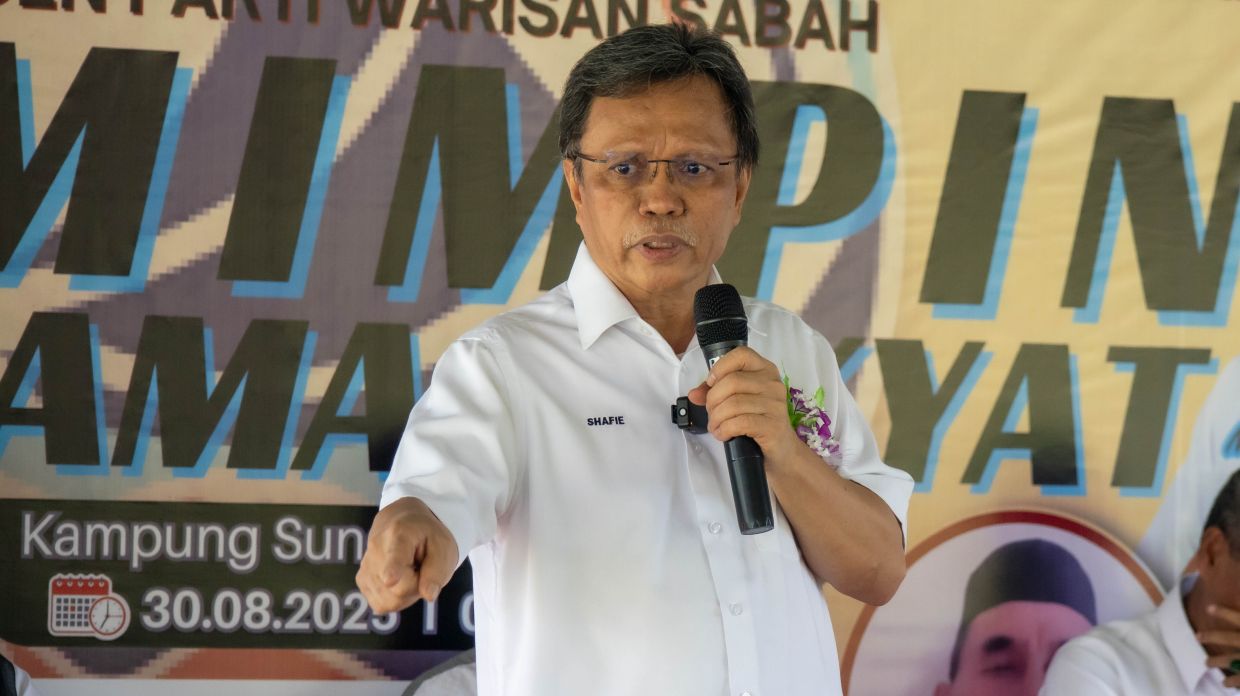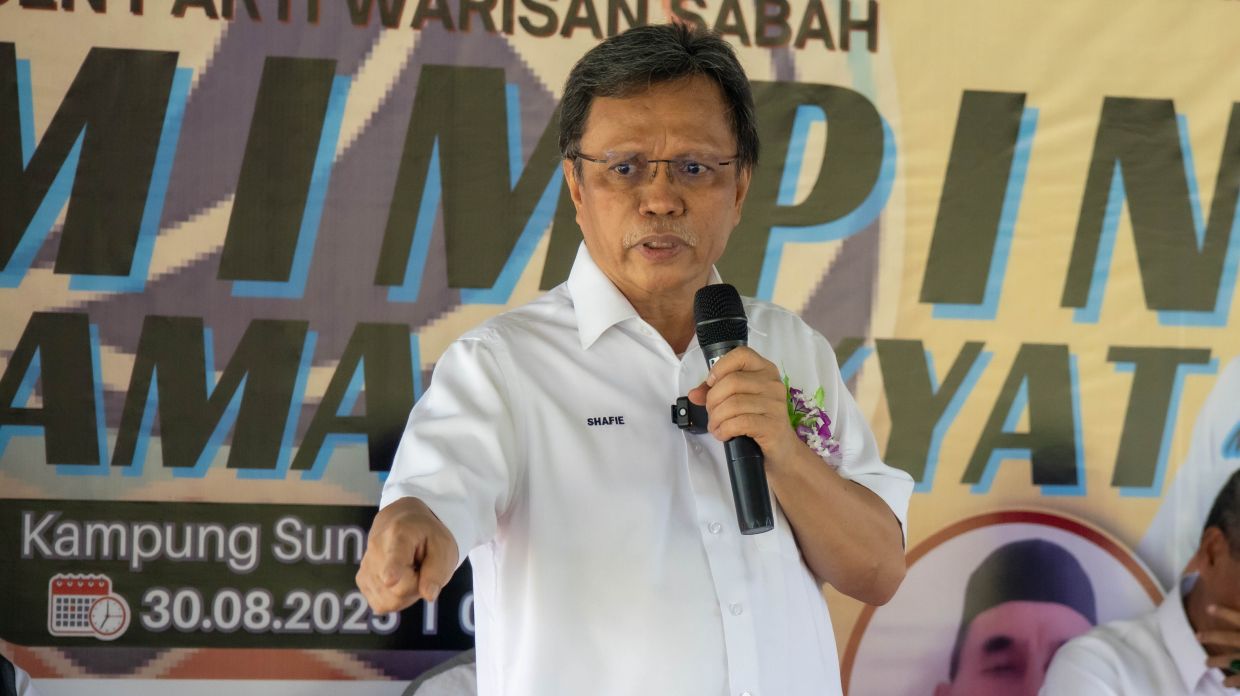
KOTA KINABALU: Sabah and Sarawak’s constitutional right to one-third representation in Parliament must be respected, said Warisan president Datuk Seri Mohd Shafie Apdal.
He said stronger representation for the Borneo states is crucial to ensure their demands are not brushed aside, adding that seat allocation is a constitutional entitlement, not a favour.
“We are not begging. It is our right, which should have been done before. But it is yet to be passed by Parliament.
“I do hope the government of the day will make a concrete decision, not just sweet talk ahead of elections,” he said when met by reporters after the Parti Warisan “Program Bersama Rakyat” in Tuaran on Saturday (Sept 13).
Shafie said that more seats for the two Borneo states in Parliament would help push for better federal allocations and accountability on projects in Sabah, including road and water infrastructure.
“We want to know where the nearly RM1bil allocated for roads has gone, and why the projects are still not finished.
“If we form the government, I will call in the Public Works Department (JKR), the Finance Ministry and federal officers to explain,” he said.
Shafie was commenting on Hajiji’s statement on Friday (Sept 12) pushing for more parliamentary seats for Sabah at the Malaysia Agreement 1963 (MA63) Implementation Action Council meeting in Kuching. He said the move was in line with the spirit of MA63 to safeguard the state’s interests.
“If it is a concrete decision made by the government of the day that they want to provide additional seats, it must be in line with the constitutional, it must be one third,” Shafie said.
Sabah leaders, including Shafie, have consistently backed calls for Sabah and Sarawak to hold one-third of the parliamentary seats.
With 222 seats in total, one-third would mean about 74 seats — far higher than the current 56 seats held by the two states, with Sabah having 25 and Sarawak 31, or just around 25%.
Meanwhile, Shafie said he was disappointed that flood-hit Kampung Sarapung villagers were left without food, water and medical aid, after his visit to the village this morning.
“I was really disappointed and appalled with the situation there. They don’t have electricity, they don’t have enough supply of water. I told our members to provide ready-to-eat food, water and ensure health needs are taken care of,” he said.






